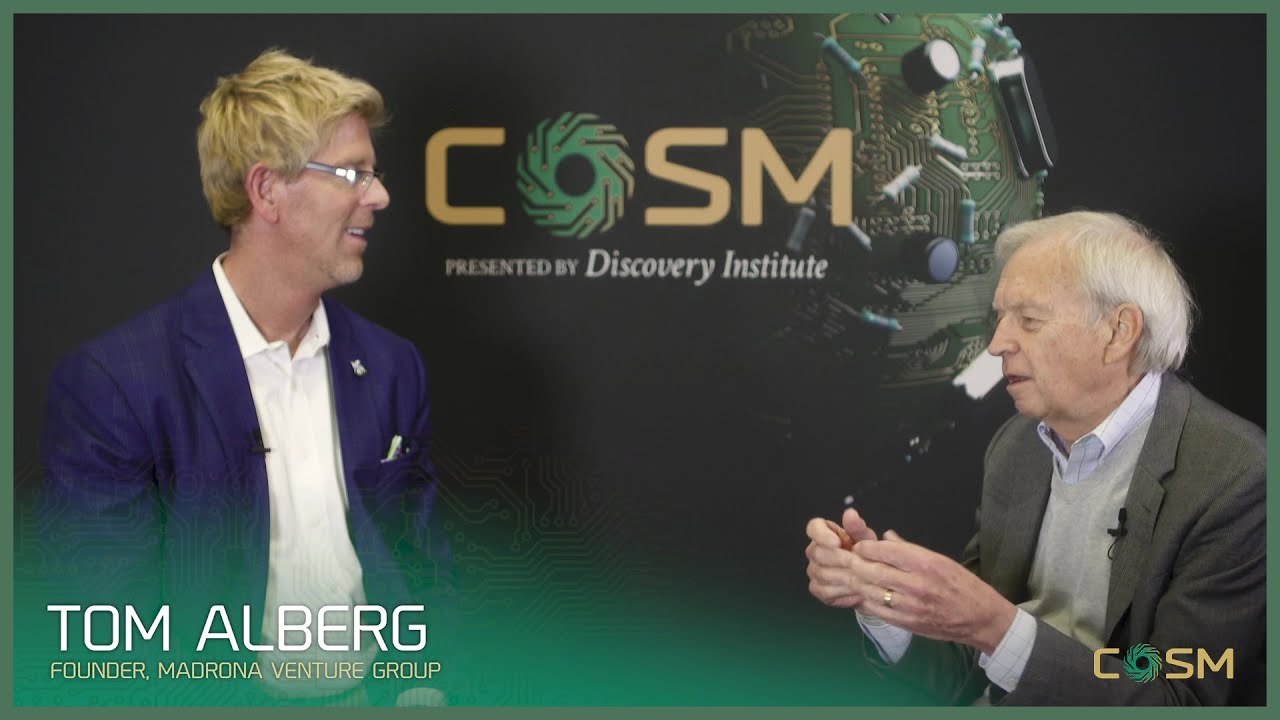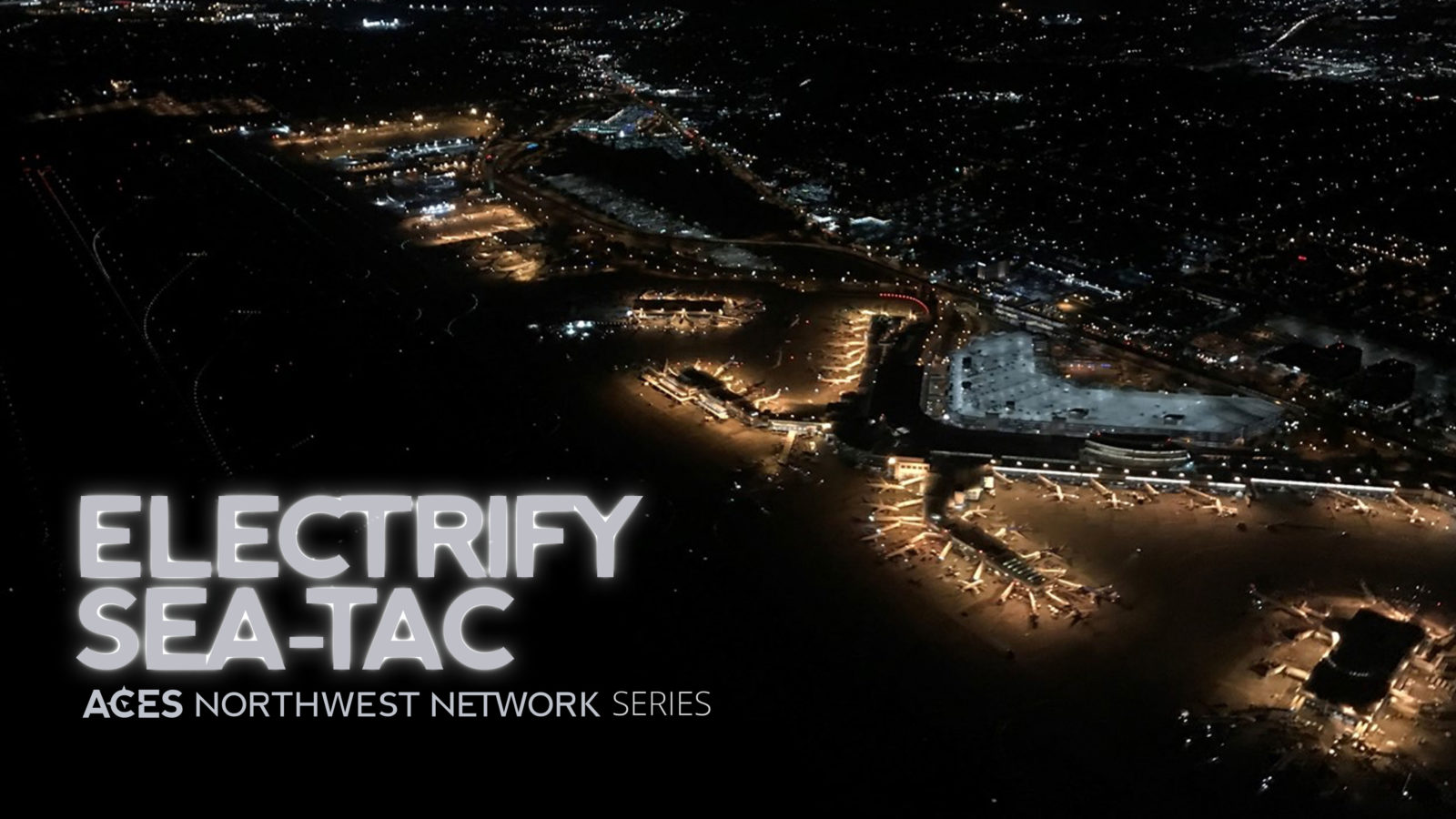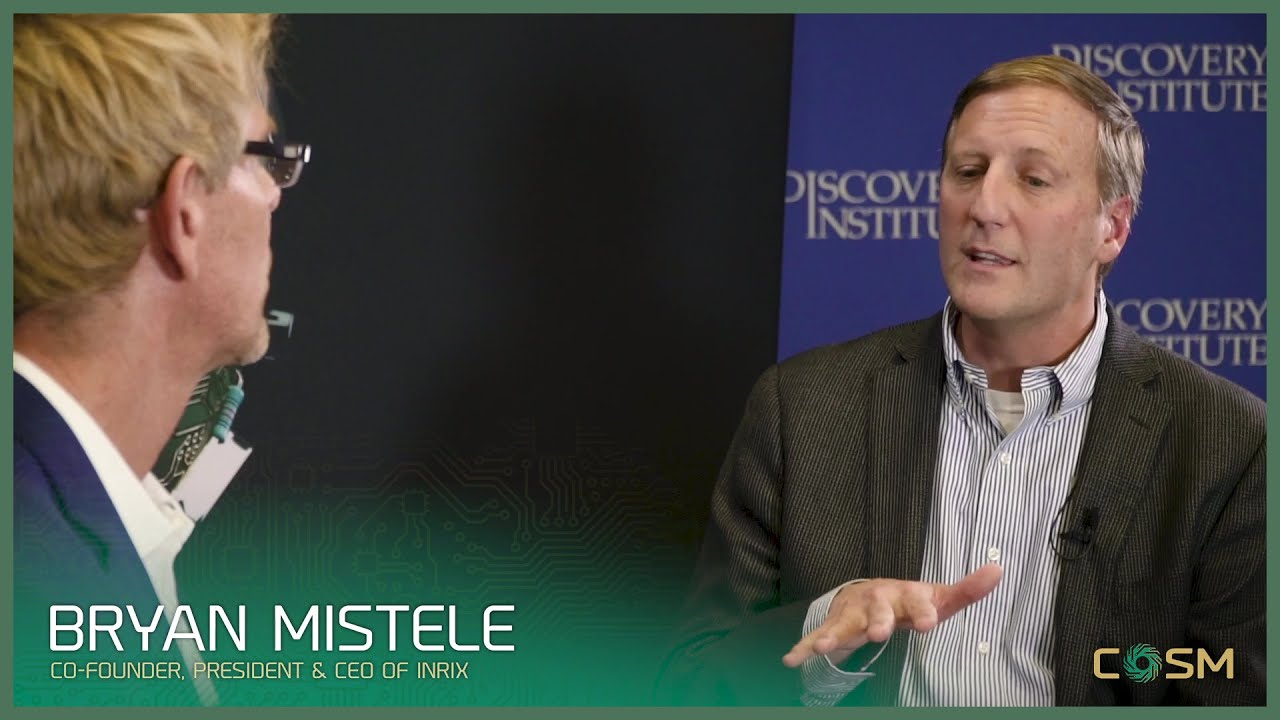


Electrify Sea-Tac
The ACES Northwest Network, and initiative of Discovery Institute’s Cascadia Center, is a unique collective working to bring Automated, Connected, Electric, and Shared vehicle technologies to the Puget Sound region. As a center of mobility for air and ground transportation, Seattle-Tacoma International Airport and the surrounding communities are poised to become a clean energy hub, building on decades of environmental Read More ›

Is Automated & Shared Vehicle Technology a Benefit to Humanity?
Jay Richards interviews Bryan Mistele, Co-founder, President and CEO of INRIX, about the future of autonomous, connected, electric, shared (ACES) vehicle transportation systems. Mistele sees the implementation of ACES vehicles being a huge benefit to humanity as they will be much more convenient and cost effective, safer, and will lead to more effective land use by being able to do Read More ›
Let technology take the wheel for safer, less-congested roads
Writing in the Seattle Times, Discovery Institute board member Brian Mistele, and Tom Alberg of Madrona Venture Group explain the mission of the Cascadia Center’s ACES Northwest Network. They explain that Pacific Northwest is in prime position to embrace the ACES approach to transportation at a broad regional level and be a leader for the nation in our approach to these life and culture changing vehicles.
Op-ed: What the next governor can do to reduce oil dependence
Seattle Expected To Be Key Market For Electric Cars
Electric Car Industry Pulls In For Quick Charge At Microsoft
This is the transcript of an interview about Discovery Institute’s Cascadia Center Beyond Oil Conference: Co-anchor Dennis Bounds: “The electric car industry pulled in for a quick charge at Microsoft’s Redmond campus today.” Co-anchor Jean Enerson: “And as KING 5’s environmental specialist Gary Chittim shows us, some of the nation’s biggest companies are ready to plug in to this technology.” Read More ›
Cascadia’s Bruce Agnew Discusses Electric Vehicles On Display At “Beyond Oil”
Discovery Institute Fellow Bruce Agnew talked about electric vehicles on the radio. His interview can be heard in the long version here and the short version here.
Northwest Is Poised To Lead In Developing Electric Car Transition
In Search Of A National Transportation Plan
This article, published by Reporter Newspapers, quotes Steve Marshall of Discovery Institute: … “One of the failures of the current system is that it doesn’t link transportation policy to energy security and climate change,” said Steve Marshall from the Cascadia Center for Regional Development. “97 percent of our transportation is fueled by oil. People literally do not have a choice. Read More ›